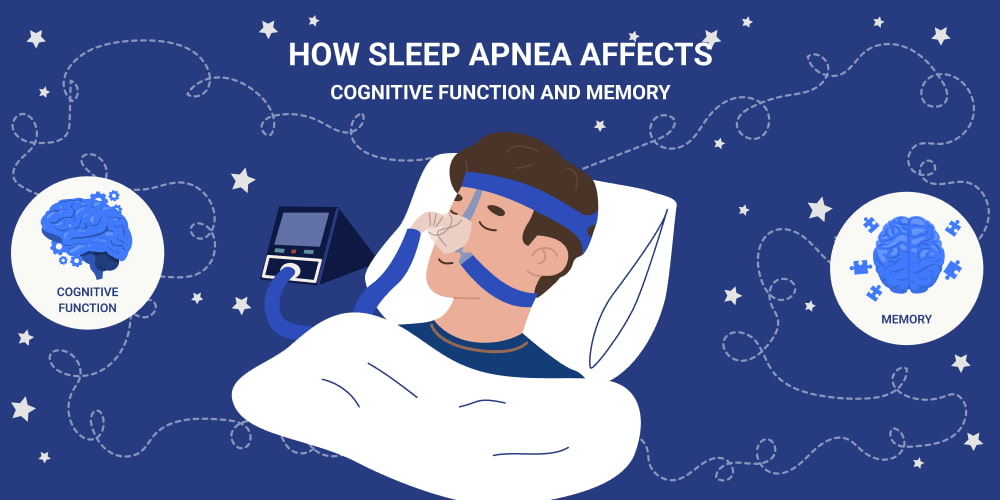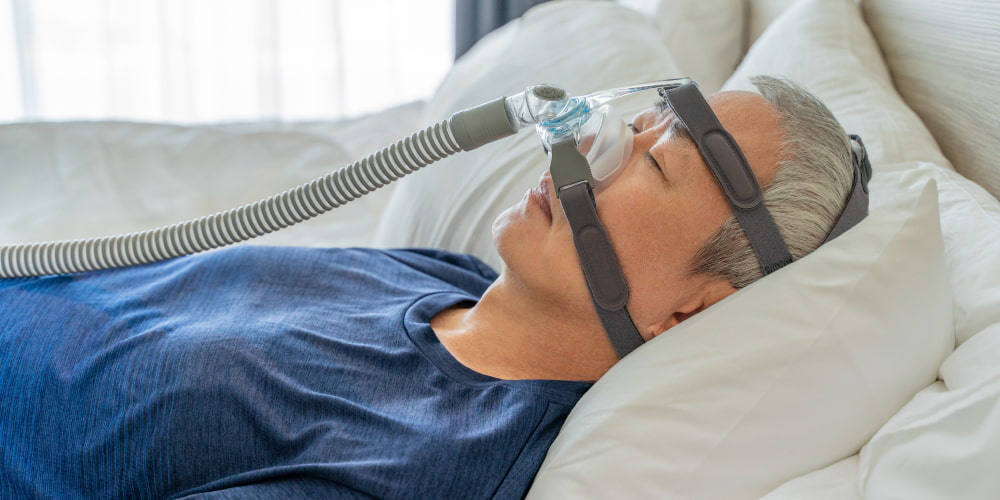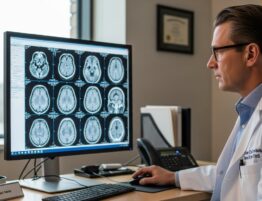Everyone experiences health issues at some point in their life. They may not be very harmful, but they may have adverse effects. Your health outcomes depend on how well you take care of yourself. The most important thing to maintain good health and longevity is lifestyle. Proper nutrition, exercise, and healthy sleep are beneficial. They have an integral part in the life of every person. Often, people face sleep disorders triggered by stress or medical conditions. Sleep apnea can occur, which is accompanied by many problems for the human body.
Apnea refers to a specific disorder characterized by pauses between breathing. A person feels tired after sleep, impaired neurological function. Sleep allows our body to develop and live normally. It is very useful and necessary for the brain. Pauses during sleep are accompanied by an insufficient amount of oxygen in the body. The body receives insufficient oxygen. Often, such a problem can cause the occurrence of many diseases. This can lead to neurological health problems. Seeing a doctor plays an important role in combating this problem.
How Sleep Apnea Affects Cognitive Function and Memory
Apnea can be a hindrance to everyday life and the functioning of the body. Quality sleep allows our body to function normally. Together with oxygen, all the necessary nutrients enter the body and blood. They play an important role in our brain and its functioning. Sleep disorders negatively affect the general functions of the body. Sleep is beneficial and essential for every person. Studies have shown that people who have apnea often suffer from some diseases. Alzheimer’s disease or dementia may appear. Timely treatment and seeking medical attention play a vital role. Apnea has a severe impact on a person’s memory and cognitive ability. This is what the impact of apnea is manifested in:
- Cognitive function. Healthy sleep is essential for human cognitive development. When a person is in a deep phase of sleep, various toxins are cleansed. Sleep helps restore neural connections and improves overall condition. It is responsible for certain parts of the brain that are responsible for decision-making. Sleep helps a person recover and improve their overall condition. Sleep problems can cause cognitive imbalances and poor outcomes. Due to apnea, the brain does not receive the necessary amount of oxygen and nutrients.
- Memory. Oxygen deprivation has a significant impact on a person’s memory. Apnea causes an insufficient level of oxygen supplied to the brain. The brain cannot function normally and does not perform its essential tasks. Lack of oxygen significantly affects the hippocampus. It is the part of the brain that is responsible for the formation of memory. As a result, a person may forget certain events in his life. He constantly experiences difficulties with memory, which leads to a deterioration in his general condition.
The Connection Between Sleep Disorders and Brain Health
Brain health is essential for every person. The brain is responsible for many functions and for our vital functions. It receives all the necessary nutrients through oxygen and blood. Violation of this process can threaten human health and disrupt many functions. The brain needs healthy and sound sleep to work. Sleep disorders have a negative effect on the brain. Apnea is accompanied by fluctuations in normal breathing during sleep. The body does not receive enough oxygen. It plays an important role in the brain. The sleep cycle in a person is disrupted, which causes several other problems. Sleep apnea has a very negative effect on the brain. A person has two phases of sleep:
- Deep sleep. Deep sleep is essential for a person. It is in it that all the critical phases of human health occur. Apnea can cause deterioration of deep sleep and disruption of certain functions. As a result, a person may have problems with emotions, learning, and memory.
- Rapid sleep. Rapid sleep provides a person with rest. Apnea causes a negative impact that is reflected in the general condition of the person. After some time, a person may experience cognitive imbalance, memory problems, and impaired decision-making.
The long-term effects of sleep apnea are accompanied by neurodegeneration. This disease is dangerous for a person because it poses many risks. Over time, a person can get Alzheimer’s or Parkinson’s disease. People who do not care for their health have signs of this condition. A toxic phase of proteins and various substances accumulates in the brain. Often, a person feels very unwell and uncomfortable.
How Sleep Apnea Can Contribute to Neurodegeneration
People often consider apnea as something not serious. However, it has been clearly proven that it is a severe disorder that has a negative impact on the body. Apnea negatively affects the brain and its functionality. Often, apnea can cause the development of neurodegeneration. Usually, in the future, a person can get Alzheimer’s disease or Parkinson’s disease. Apnea negatively affects the general condition of the human body and its functions.
- Apnea has a significant impact on brain function. Oxygen deprivation can occur, which is accompanied by a negative effect on human health. The level of oxygen in the blood due to apnea is very low. Lack of oxygen can cause hypoxia. Constant anxiety due to apnea leads to the death of cells in the brain. Lack of normal sleep affects parts of the brain, such as the hippocampus and basal ganglia. Neurodegeneration occurs as a result of the disruption of all functions in the human body. Lack of oxygen causes damage to neurons and impaired cognitive abilities.
- Apnea leads to the accumulation of toxic proteins in the brain. They are very harmful to humans and can cause several problems. Usually, long-term apnea provokes the occurrence of Alzheimer’s disease and Parkinson’s disease. Cells in the brain die due to insufficient oxygen. Sleep is essential for every person, and it is beneficial. Providing nutrients to the brain in oxygen is critical. Chronic apnea deprives the brain of sufficient oxygen. The problem is quite common among many people.
The Long-Term Neurological Risks of Untreated Sleep Apnea
Sleep disorders are accompanied by a number of negative problems for the human body. Treated apnea poses serious risks to future health. Often, individuals experience neurological issues that affect their daily life. Changes occur in the brain that are dangerous for health. It cannot function normally due to lack of oxygen. As a result, a person develops cognitive and memory impairment. In the beginning, the impairment may be accompanied by mild symptoms. However, in the future, a person can encounter serious problems that harm health.
- Oxygen deprivation causes neural impairment. The human brain begins to suffer, and its cells die. Lack of oxygen affects the part of the brain associated with memory and cognitive abilities. Oxidative stress occurs in the brain, which causes great harm to the nervous system. After some time, a person begins to suffer from serious diseases.
- Apnea accelerates the process of various diseases at first. The brain ceases to function normally and fulfill its role. The most important thing that can ensure a good outcome is the initial diagnosis. Seeing a doctor is necessary to improve a person’s general condition. Special therapies can help restore the lack of oxygen in the body. Treatment can support brain health and the general condition of the body.
Treatment Options for Sleep Apnea and Neurological Protection
The treatment of apnea plays an important role in a person’s further health. The impact on the brain becomes less strong, and a person can live normally. There are several effective treatment methods aimed at improving the general condition. The most important thing a person can do is to consult a doctor in a timely manner. Neurological health and the brain play an essential role in normal life. Here are the main methods of treatment for apnea:
- Specialized oxygen therapy plays an important role in improving overall well-being. The body receives a sufficient amount of oxygen that enters the brain immediately. Usually, treatment is aimed at improving sleep and reducing apnea. A person receives a constant flow of air that is necessary for life.
- There are special oral appliances that help change the jaw. The airways during these devices remain open. A person receives the necessary dose of oxygen. Sometimes, surgical intervention is needed in treatment. Surgical interventions can help restore normal breathing. Sleep disorders can be treated through various methods. The most important thing is to consult a doctor in time.
Why You Should Prioritize Sleep for Optimal Brain Health
Sleep is essential for all functions in the body and human health. During the deep phase, the brain can cleanse all toxins and restore its functions. Sleep helps the body rest and gives it strength. People with apnea often face the problem of lack of oxygen. Oxygen deficiency causes serious problems in the future. Neurodegeneration occurs, which is accompanied by serious diseases in the future. A person faces a deterioration in memory, general well-being, and impaired cognitive balance. The presence of these symptoms may indicate sleep apnea. You should immediately seek help from a doctor. The doctor will conduct a complete examination and clarify the problem in your body. Treating sleep apnea helps maintain overall health. Treatment varies depending on the severity of the condition. It is aimed at restoring the general condition and improving the functions of the body and brain.













Please, leave your review
Write a comment: